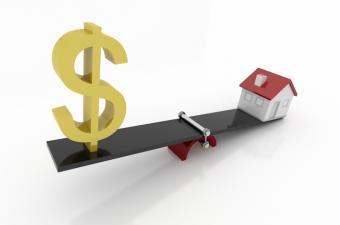August marks the 18th consecutive month of rising home prices, according to ""FNC's Residential Price Index"":http://www.fncrpi.com/ViewFile.aspx?ref=pr_71 released Tuesday, indicating an indisputable recovery. However, ""FNC,"":http://www.fncinc.com/ a mortgage industry technology provider, is detecting some deceleration in the recovery and declares, ""It is clear that the recovery remains uneven across the nation.""
[IMAGE]On a monthly basis, prices rose 0.6 percent in August, according to FNC's composite of 100 large metropolitan areas. On a yearly basis, the increase is 5.3 percent. The monthly gain in August was smaller than the gains accrued over the two previous months.
FNC's 30-market composite also posted a 0.6 percent month-over-month increase in August.
San Antonio, Texas, topped the 30-market list with a 2.1 percent gain, followed by Las Vegas with a 1.8 percent gain. Charlotte, North Carolina, and New York tied for third place with a 1.5 percent price gain over the month.
[COLUMN_BREAK]In all, 26 of the 30 markets posted price increases in August. The four markets where prices declined were Phoenix, Arizona (-0.1 percent), Baltimore, Maryland (-0.2 percent), Los Angeles (-0.4 percent), and Denver, Colorado (-0.4 percent).
""This softening price trend in Phoenix and Los Angeles--two of the housing market's most important barometers--emerged after a long streak of rapid price accelerations that averaged more than a 2.0% month-over-month increase,"" FNC stated.
FNC also noted that while the Chicago market ""is on the mend,"" it is lagging all other markets in the index in terms of price appreciation.
FNC's index is built on a database that blends public records of residential sales prices with real-time appraisals of property and neighborhood attributes. FNC says it includes both non-distressed and distressed sales in its index but as a gauge of underlying home values, excludes sales of foreclosed homes, which frequently carry large price discounts.
The company does note in its report, though, that foreclosure sales made up 12.4 percent of home sales in August, down from 12.7 percent in July and down more than 4.5 percentage points from August of last year.
Declining foreclosure filings and decreasing foreclosure inventory are two contributing factors to the recent home price gains, according to FNC.
FNC warns price gains may decelerate somewhat in coming months with seasonal trends. Already the sale-to-list price ratio is declining. In September, FNC reports, homes sold for 96.2 percent of their list price, down from 97.2 percent in August.

 theMReport.com Your trusted source for mortgage banking news
theMReport.com Your trusted source for mortgage banking news









